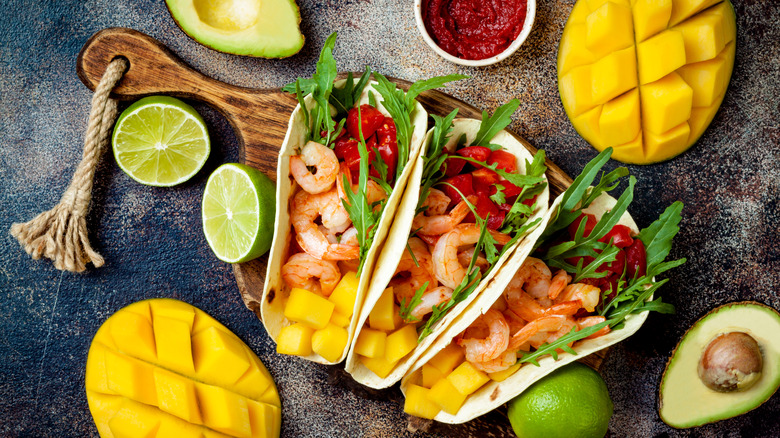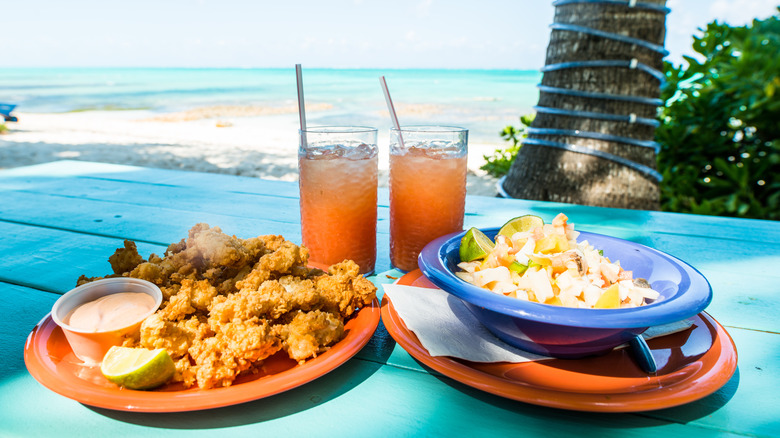What Is 'Floribbean' Cuisine And How Did It Come About?
"Floribbean" is a portmanteau word — and it's not very difficult to guess its origins. The term was coined for regional Florida cuisine, which incorporates tropical influences from throughout the Caribbean Basin and beyond. In its formative years, Floribbean was often referred to as a "New Era" cuisine, although most agree its roots actually go back a very long way — all the way back to the Spanish arrival in the Americas, in fact.
Floribbean cuisine benefits from an enormous variety of influences — not surprisingly, multicultural Miami was a hotbed for the burgeoning movement — and the Cuban, Jamaican, Puerto Rican, Haitian, and Bahamian influences are evident in the emergent food style. Signature dishes in Floribbean cuisine thus include island inspired favorites such as the Cuban sandwich, arroz con pollo, Haitian griot, and Jamaican style jerk chicken, as well as regional favorites like stone crab, conch fritters, and Key lime pie.
Despite the disparate influences, there are some common elements to Floribbean cuisine. Given Florida's abundant coastline, seafood is a staple, particularly in dishes featuring gumbo, grouper, or peel and eat shrimp. Regional fruits like key limes, mangoes, and pineapples are frequently used, notably, in sauces like Old Sour and the Floribbean standard, mango salsa.
The origins of Floribbean cuisine
The influx of Cuban immigrants to South Florida following the Cuban Revolution in the 1950s was an important factor for the development of Floribbean cuisine, as the numerous Caribbean strains embedded in traditional Cuban food culture proved an inspiration to Florida chefs. The flowering of the Floribbean movement, in fact, happened contemporaneously with the emergence of the so-called "Mango Gang," a group of South Florida chefs that included Norman Van Aken, Mark Militello, Douglas Rodriguez, and Allen Susser. Beginning in the 1980s, these chefs and others in the state helped to pioneer the idea of a vibrant, colorful, and innovative regional cuisine based on fresh local ingredients.
Van Aken, now a James Beard award winner, noted in the late 1980s, via a letter obtained by Nation's Restaurant News, that his take on Floribbean cuisine was rooted in the several regional cooking traditions: notably, Conch (a name used for Key West natives), Spanish, Cuban, and Black. Susser, for his part, summed up the Floribbean culinary style as a "marriage of the familiar and the unfamiliar" to CNN.
The cross-cultural aspect of Floribbean cuisine has always made it somewhat hard to define, since at various times European, Asian, and African influences have also been credited along with those from the Caribbean and Latin America. Thus, the term Floribbean has become something of a catchall for regional Florida cuisine featuring fusion elements.

